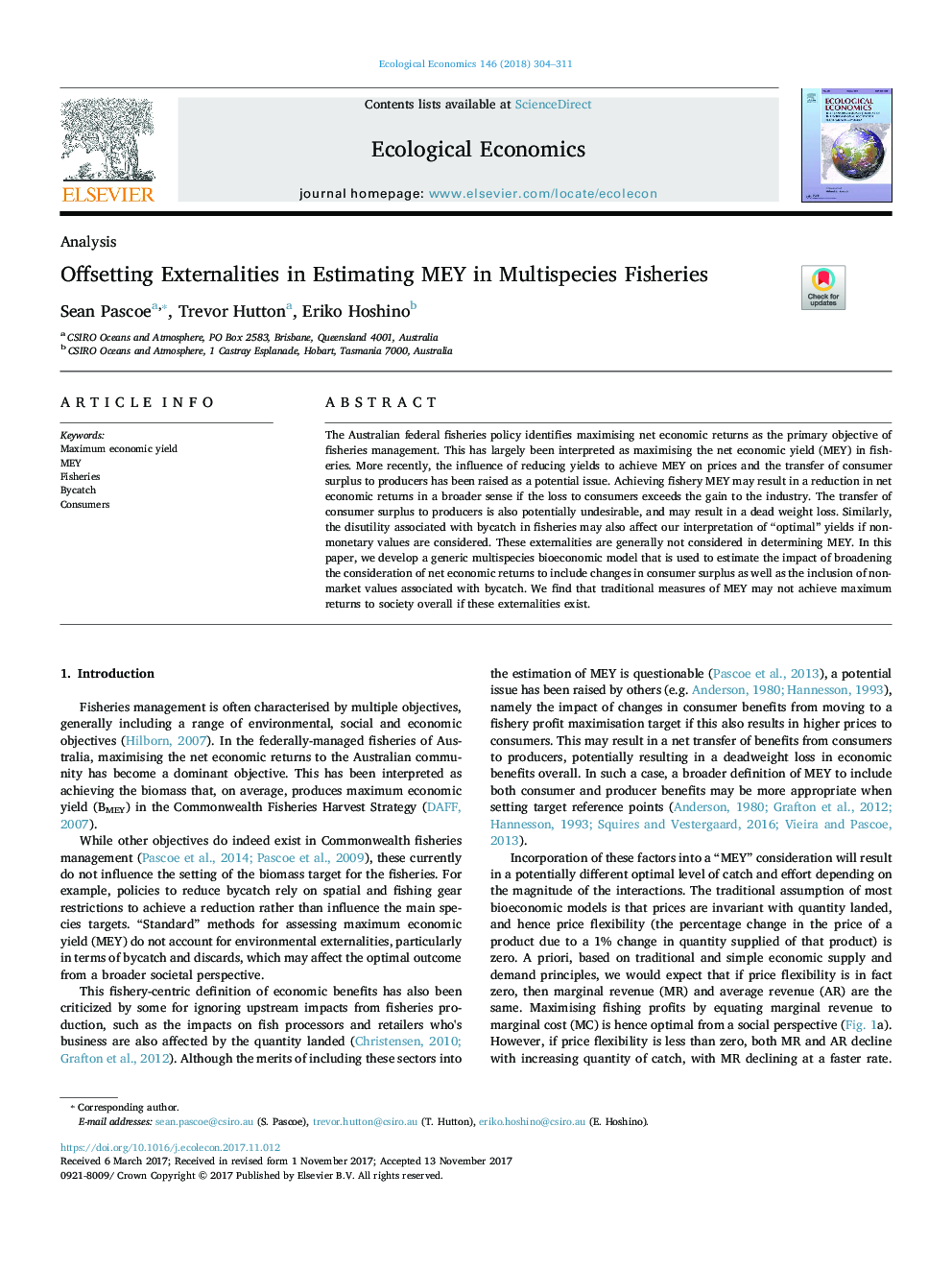| Article ID | Journal | Published Year | Pages | File Type |
|---|---|---|---|---|
| 7344572 | Ecological Economics | 2018 | 8 Pages |
Abstract
The Australian federal fisheries policy identifies maximising net economic returns as the primary objective of fisheries management. This has largely been interpreted as maximising the net economic yield (MEY) in fisheries. More recently, the influence of reducing yields to achieve MEY on prices and the transfer of consumer surplus to producers has been raised as a potential issue. Achieving fishery MEY may result in a reduction in net economic returns in a broader sense if the loss to consumers exceeds the gain to the industry. The transfer of consumer surplus to producers is also potentially undesirable, and may result in a dead weight loss. Similarly, the disutility associated with bycatch in fisheries may also affect our interpretation of “optimal” yields if non-monetary values are considered. These externalities are generally not considered in determining MEY. In this paper, we develop a generic multispecies bioeconomic model that is used to estimate the impact of broadening the consideration of net economic returns to include changes in consumer surplus as well as the inclusion of non-market values associated with bycatch. We find that traditional measures of MEY may not achieve maximum returns to society overall if these externalities exist.
Related Topics
Life Sciences
Agricultural and Biological Sciences
Ecology, Evolution, Behavior and Systematics
Authors
Sean Pascoe, Trevor Hutton, Eriko Hoshino,
